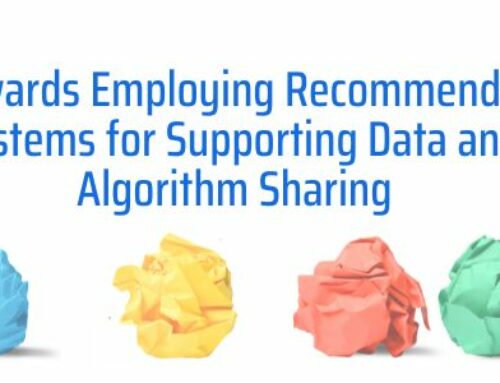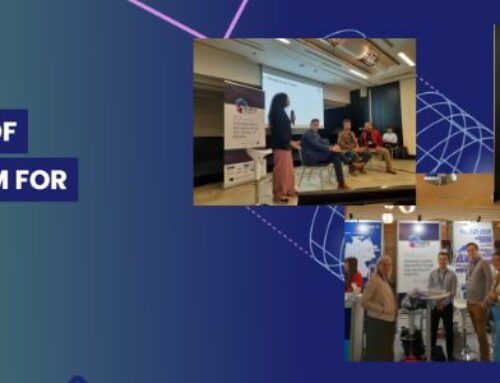Internal Workshop
G1 and TU Delft conducted a workshop within the internal consortium on 22 October 2020 to discuss the positioning of the TRUSTS-project in the European data economy. The objective of the workshop was twofold:
- Solicited perspectives and inputs from TRUSTS consortium partners to position the TRUSTS project in the European data economy
- Initiated business modeling for trusted secure data sharing spaces
Participants discussed three possible choices of TRUSTS positioning in the European data economy. These are 1) TRUSTS as a data market, 2) TRUSTS as a federator of data markets, and 3) TRUSTS as a data ecosystem facilitator.
First, as a data market, TRUSTS can be viewed as a platform to facilitate data trading (i.e. data exchange and financial transaction) between data providers and data buyers. It will provide fundamental functionalities such as onboarding mechanisms, dataset discoveries, trading arrangements, etc. To date, TU Delft has developed two business model taxonomies to position TRUSTS as a data market (see Bergman, 2020; van de Ven, 2020). The studies have identified value-adding services to attract both data providers and buyers, namely:
- cleaning data to ensure data quality
- analysing data to create aggregated datasets
- offering personal assistance in data sale and acquisition

© mark-fletcher-brown on Pixabay
Second, TRUSTS can also be viewed as a federator of data markets, going beyond the development of “yet another data market platform.” As a potential federator, TRUSTS will be interoperating with existing data markets (IDS, DMA) and future data markets. TRUSTS will potentially create value by forwarding and connecting data market traffics, gradually harmonising technology stack through coordination and common standards, and providing non-differentiating capabilities (e.g. billing) as shared-services. One interesting topic raised by a participant was the conceptual form of the federation.
“Which conceptual model will we employ? The federation based on a hierarchal meta-platform or Peer to Peer (P2P) network of data markets?”
The participants discussed that a hierarchical meta-platform would be a starting point for the federation of data markets. Insights from such a meta-platform as well as insights from interoperable industrial data clouds may lead to the emergence of P2P federations of data markets in the more distant future.
Finally, as a data ecosystem facilitator, TRUSTS will be potentially served by taking on one or multiple roles as
- a champion among data markets and propagating federatedness
- an industry association of European data markets by driving standards and shaping policies,
- an innovation hub, providing experimental environment(s) and brokerage of associated services
In general, the workshop participants were aware of these three positionings and had the same perspective that TRUSTS should fulfill the project mandate (i.e. enable interoperability with other data markets). Other interesting topics that need to be further discussed include the identification of TRUSTS’ value proposition, the primary obstacles to the adoption of federation by data markets, the operating company of TRUSTS, etc.
The next step is to develop webinar content based on these workshop results. We will also refine the workshop materials and re-run the refined workshop with participants outside the TRUSTS consortium.
Reference
BERGMAN, R. 2020. A Business Model Taxonomy for Data Marketplaces. Master of Science, Delft University of Technology.
VAN DE VEN, M. R. 2020. Creating a Taxonomy of Business Models for Data Marketplaces. Master of Science, Delft University of Technology.




